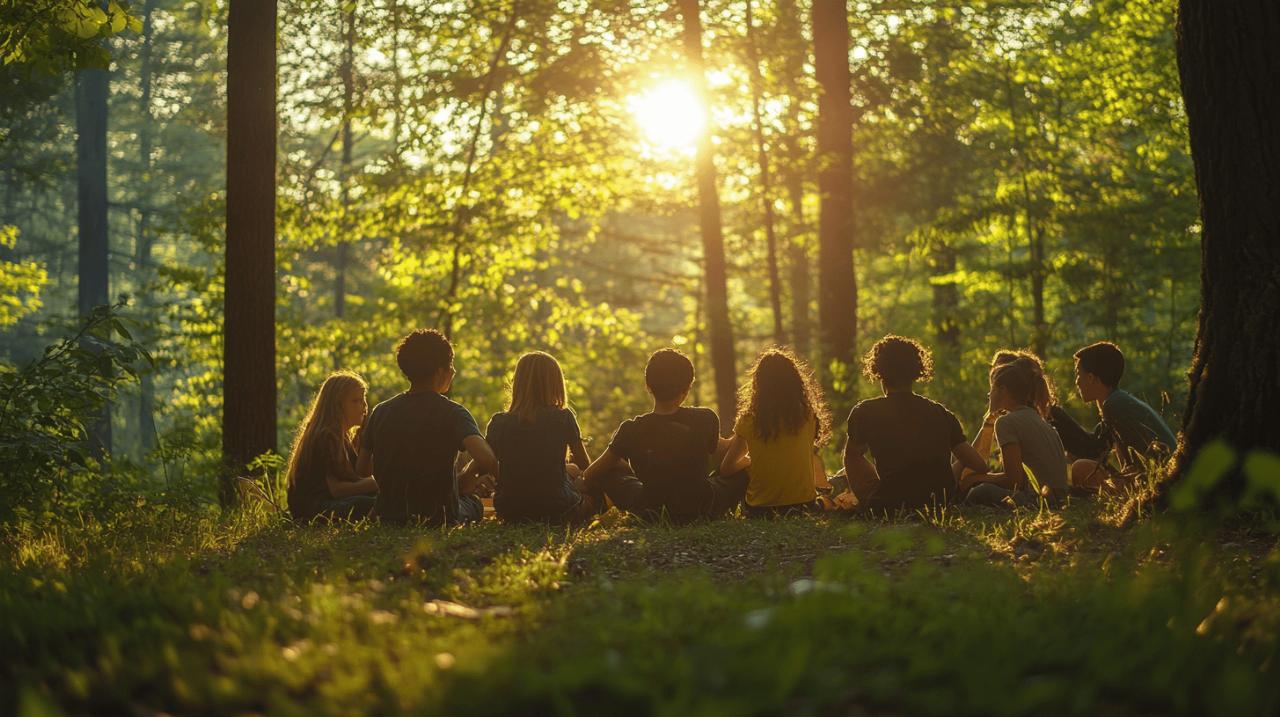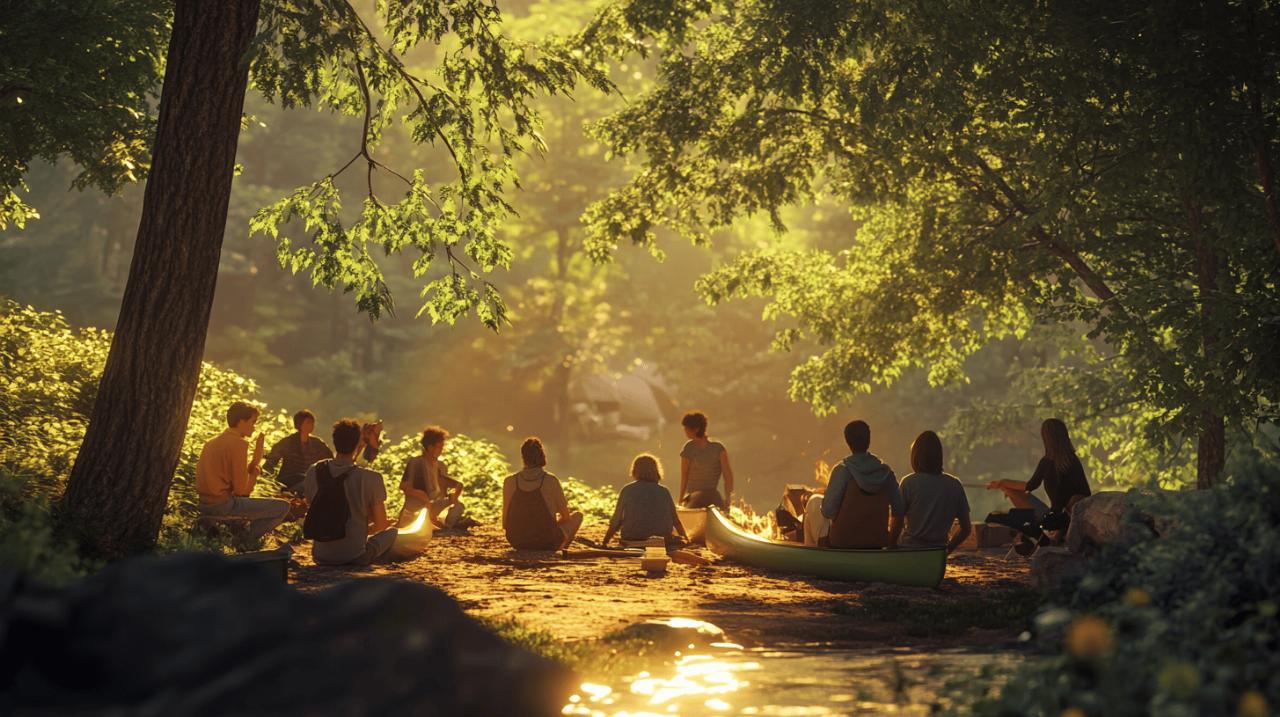Choosing a Holiday Camp for a Shy Teen: Our Expert Advice on Finding the Perfect Fit
Selecting the right holiday camp for a teenager who leans towards being quiet or reserved can feel like quite the undertaking for any parent. The prospect of sending your child into an unfamiliar environment, surrounded by new faces and novel routines, might raise a few eyebrows and anxieties on both sides. Yet with thoughtful consideration and a clear understanding of what truly matters, you can discover a camp experience that not only respects your teenager's temperament but actively supports their personal growth and confidence. It is about finding that balance between gentle encouragement and genuine comfort, ensuring that the holiday becomes a memorable chapter rather than a source of stress.
Understanding your shy teenager's needs and building their confidence
Recognising the Signs: What Makes a Teen Shy and How Camps Can Help
Every young person has their own unique way of engaging with the world, and for some, this means taking a little longer to warm up in social situations. A shy teenager might hesitate before joining a group conversation, prefer observing before participating, or feel more at ease in one-to-one exchanges rather than large gatherings. These tendencies are not shortcomings; they are simply part of who your child is. Understanding these characteristics is the first step towards choosing a camp that will work with rather than against their nature. Holiday camps designed with an awareness of different personality types can offer structured yet flexible environments where quieter teens are gently encouraged to step outside their comfort zone without feeling overwhelmed. Through carefully planned activities that balance individual pursuits with collaborative projects, camps can become the perfect setting for building social skills and self-assurance in a supportive atmosphere.
Starting the Conversation: Addressing Worries and Setting Realistic Expectations
Open dialogue is essential when preparing your teenager for a camp experience. Take the time to sit down together and discuss any concerns they might have. It is perfectly natural for them to feel nervous about meeting new people or trying activities they have never encountered before. Acknowledge their feelings and reassure them that these emotions are valid and shared by many others. Talk through what a typical day at camp might look like, highlighting the variety of activities on offer and the support available from experienced staff members. Encourage your teenager to express their hopes and worries, and work together to set realistic expectations. This conversation not only helps to ease anxiety but also empowers your child by involving them in the decision-making process. When they feel heard and understood, they are far more likely to approach the camp experience with a positive mindset and a willingness to embrace new opportunities.
Essential Features to Look for When Selecting a Holiday Camp
The camp's educational philosophy and supportive environment
Delving beyond glossy brochures and vibrant photographs is crucial when evaluating potential camps. The underlying educational philosophy of a camp reveals much about how it will nurture your teenager. Does the camp prioritise personal development, teamwork, or the acquisition of specific skills? A well-defined educational project provides a framework that can help shy teens feel secure and engaged. Look for camps that emphasise gradual social integration, where young people are encouraged to participate at their own pace rather than being thrust into the spotlight. A supportive environment is one where staff members are attuned to the needs of quieter individuals, offering gentle encouragement and celebrating small victories. This kind of atmosphere can make all the difference, transforming a potentially daunting experience into one that fosters genuine growth and self-discovery.
Staff Qualifications and Child-to-Leader Ratios That Make a Difference
The quality and experience of the camp's team cannot be overstated. Staff members are the heart of any camp, and their ability to create a welcoming and inclusive atmosphere is paramount. When researching camps, do not hesitate to ask about the qualifications and training of the leaders and instructors. Are they experienced in working with young people who may need a little extra support? Have they received training in recognising and nurturing different personality types? A favourable child-to-leader ratio is also vital, as it ensures that each teenager receives adequate attention and supervision. Smaller group sizes often mean that staff can more easily identify those who might be feeling left out or anxious, allowing them to step in with timely encouragement. This level of attentiveness helps to build trust and makes it easier for shy teens to form meaningful connections with both peers and adults.
Activities and Programmes That Encourage Shy Teens to Flourish
Balancing individual pursuits with gentle group engagement
 A well-rounded camp programme offers a diverse range of activities that cater to different interests and comfort levels. For a shy teenager, the ideal mix includes opportunities for both solitary exploration and collaborative engagement. Individual pursuits such as arts and crafts, reading, or nature walks allow your child to engage at their own pace, building confidence in their abilities without the pressure of constant social interaction. At the same time, gentle group activities like team games, drama workshops, or shared projects provide a safe space for them to practise social skills and form friendships. The key is to ensure that participation feels voluntary rather than compulsory, giving your teenager the freedom to choose when and how they engage. This balance helps to prevent feelings of overwhelm while still encouraging them to step outside their comfort zone in manageable increments.
A well-rounded camp programme offers a diverse range of activities that cater to different interests and comfort levels. For a shy teenager, the ideal mix includes opportunities for both solitary exploration and collaborative engagement. Individual pursuits such as arts and crafts, reading, or nature walks allow your child to engage at their own pace, building confidence in their abilities without the pressure of constant social interaction. At the same time, gentle group activities like team games, drama workshops, or shared projects provide a safe space for them to practise social skills and form friendships. The key is to ensure that participation feels voluntary rather than compulsory, giving your teenager the freedom to choose when and how they engage. This balance helps to prevent feelings of overwhelm while still encouraging them to step outside their comfort zone in manageable increments.
Finding specialist camps that match your child's interests and personality
Not all camps are designed with the same audience in mind, and this diversity is a strength when it comes to finding the right fit for your teenager. Specialist camps that focus on particular interests or hobbies can be especially beneficial for shy teens, as they provide a natural common ground for forming connections. Whether your child is passionate about music, science, outdoor adventures, or creative writing, there is likely a camp that caters to their enthusiasm. When young people are surrounded by others who share their interests, conversations flow more easily and friendships develop organically. These niche environments can also offer a sense of belonging that is harder to find in more generalist settings. By choosing a camp that aligns with your teenager's passions, you are giving them the best possible chance to thrive and feel truly at home.
Practical Steps for Parents: Preparing Your Teen for Their Camp Experience
Involving Your Teenager in the Selection Process for Greater Buy-In
One of the most effective ways to ensure your teenager feels positive about their camp experience is to involve them directly in the selection process. Show them brochures, explore camp websites together, and watch any available videos or testimonials. Discuss the different options openly, weighing up the pros and cons of each. By giving your child a voice in the decision, you are not only respecting their autonomy but also increasing their sense of ownership and commitment. When young people feel that they have had a say in choosing their camp, they are far more likely to approach the experience with enthusiasm and an open mind. This collaborative approach also provides an opportunity to address any remaining concerns and to reinforce the idea that the camp is a place where they can be themselves, explore new interests, and make lasting memories.
Checking data protection policies and ensuring your child's safety
In today's digital age, safeguarding your child's personal information is just as important as ensuring their physical safety. Before committing to a camp, take the time to review the organisation's data protection policies. How will your teenager's personal details be stored and used? Are there robust measures in place to protect their privacy, both online and offline? It is also worth inquiring about the camp's general safety protocols, including supervision standards, emergency procedures, and health and wellbeing support. A reputable camp will be transparent about these matters and happy to answer any questions you may have. Knowing that your child is in a secure and well-regulated environment will give you peace of mind, allowing you to focus on the positive aspects of the experience and the growth opportunities it presents.
